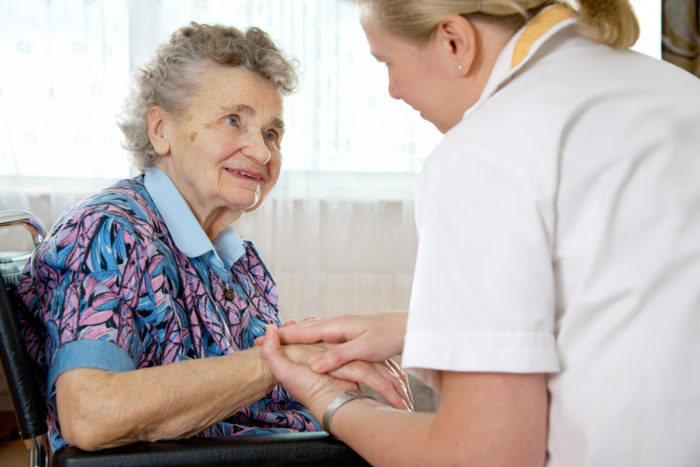The shortage of nursing assistants is having dire consequences for older adults. Millions of patients are going without the support they need to prepare meals, organize medications and run errands. They also may be lacking support to get safely to the bathroom or change undergarments and bedding during times of incontinence.

As Urology Needs Rise, Health Care Workers Dwindle
Urology disease, incontinence and overactive bladder are common conditions in older adults, affecting one in every two people. And these conditions are expected to become more common because of the aging population and lifestyle trends, including rising rates of obesity and diabetes.
Likewise, the demand for nursing assistants is expected to grow. More than 1 million new home care jobs will be needed in the next decade, as Baby Boomers retire. The growing labor shortage provides a new sense of urgency to treat urology conditions affecting the kidneys and bladder.
Proactively Treating Incontinence & Overactive Bladder
Proactively diagnosing and treating overactive bladder and related urology conditions offers several benefits.
Optimal health. Treating conditions before they progress further will give patients the best opportunity to restore their urology health.
Quality of life. Addressing the physical and emotional challenges of urinary incontinence can improve patients’ quality of life.
Best use of health care resources. With better urological health, the $5.3 billion spent managing urinary incontinence in long-term care facilities each year could be redirected to more fulfilling resident-enrichment activities.
Workforce utilization. Getting a handle on urological health across the board can also reduce the burnout among an already strained health care workforce.
About Overactive Bladder
While overactive bladder happens mostly in women during pregnancy or after childbirth, it can also happen to men, and can affect their prostate and reproductive organs as well. In older adults, nerve damage, such as that caused by Parkinson’s disease, multiple sclerosis or stroke, can signal the brain to empty the bladder at the wrong time.
Overactive bladder can be treated by physical therapy, medications, neuromodulation and, in severe cases, surgery.

